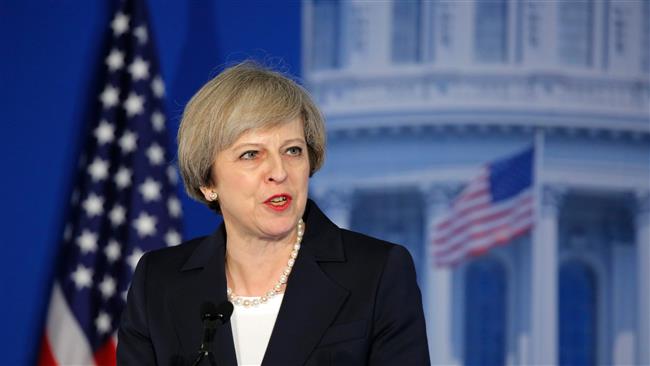
Concern is growing among farmers that a UK-US trade deal could 'under-cut' the industry with cheaper imports.
Prime Minister Theresa May is meeting with President Donald Trump today (27 January) who has promised to secure a quick bilateral trade deal with the UK after Brexit.
The pair will spend about an hour together in the first visit by a foreign leader to the White House since Mr Trump became president.
Although the UK cannot begin to negotiate trade deals with the US or other countries until it leaves the EU, Mr Trump has said he wants a "quick" deal after that, and the two leaders are expected to discuss future co-operation.
But Liberal Democrat leader Tim Farron warned that both leaving the EU single market and farmers being potentially undercut by cheaper imports from the United States could concoct a 'perfrect storm'.
He said: "Pulling Britain out of the Single Market would hit UK farmers especially hard, as tariffs for agricultural products are far higher than in other sectors.
"The US also has far lower animal welfare and food standards than we do, including on factory farming, the use of growth hormones and antibiotics.
"British farmers therefore risk facing a perfect storm, losing tariff-free access to vital European markets while being undercut by imports from the US and elsewhere."
'Level playing field'
Lionel Colby, consultant for the Agriculture and Horticulture Development Board (AHDB) said a harder-line approach taken by the new President Trump could present a threat to UK agriculture.
"The policy of the new Trump administration on this issue is at present unknown," he said.
"However, it is already indicating that it will be taking a more hard-line in respect to international trade agreements.
"This could represent a threat to the small but growing UK pork trade. It might also mean that other EU exporters to the US would divert high quality pork to other markets inside and outside of the EU."
Opening more markets for British goods was supported by NFU director of strategy Martin Haworth, but he warned it must not put British farmers at a disadvantage.
"We believe a fundamental principle of future trade negotiations should be to ensure a level playing field for British farmers in order for them to be competitive, profitable and productive in the future," he said.
'Difficult choice'
The Farmers' Union of Wales previously said free trade deals could have a detrimental impact on British agriculture and rural communities. They said there was 'significant concern' regarding dairy, beef and lamb sectors post-Brexit.
FUW president Glyn Roberts said: "The loss of nearby and relatively affluent continental markets, and the degree to which these can be realistically replaced by markets which are much further afield, given the costs, logistics and reality of gaining similar access to alternative, by definition more distant markets is a real concern."
The Financial Times wrote that the United States wanted lower tariffs to permit American exports but there were also demands for hygiene standards to be changed to permit it.
"Whatever the White House talk of a special relationship, it is unlikely that its farm lobby would allow the UK to sign a deal without opening its markets to their exports. The same is true of Australia and New Zealand, also highly efficient agricultural exporters high on the list of possible post-Brexit trade deals."
The UK would face a 'difficult choice', they said, between cheaper food imports or 'liberalising' the sector.
